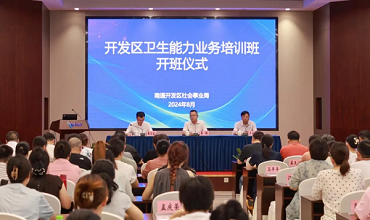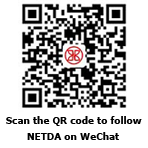NETDA extends mass vaccination program to young aged 12-17
The Nantong municipal government on Aug 3 launched an extended COVID-19 vaccination drive for young people in the city – located in East China's Jiangsu province – aged 12-17 years old.
China has to date approved the emergency use of COVID-19 vaccines made by Sinopharm and Sinovac for young people aged from 12 to 17.
In the Nantong Economic & Technological Development Area or NETDA, as of Aug 4 more than 2,000 school-age students in the area had reportedly been vaccinated against COVID-19 with no adverse reactions.
The authorities will roll out first-dose vaccination for minors aged 12-14 from Sept 20 to 30 and a second-dose vaccination for them from Oct 11 to 19.
It's estimated that the total number of people aged 12-17 in the city is about 333,000 – and it is expected that the second-dose vaccination will be given to them by the end of September.
Here are some tips on how to protect yourself and others from COVID-19.
Maintain social distancing
Maintain at least a one-meter distance between yourself and anyone else, especially if they are coughing or sneezing.
Avoid physical contact when greeting others
The World Health Organization (WHO) recommends you avoid shaking hands with others, as the virus could easily be spread that way. Alternatives include a wave, a nod or a bow.
Apply hand sanitizer regularly
Always keep a bottle of hand sanitizer available in your home as well as one in your car or bag, if you do have to go out.
Wash your hands frequently with soap for 20 seconds
The WHO says that washing your hands is a more effective way of offering protection than wearing rubber gloves. This is because if you touch your face after using gloves, the contamination goes from your glove to your face and therefore can infect you.
Make sure your face mask covers your mouth and nose
If you choose to wear a face mask, make sure it covers your mouth and nose and not one or the other. Also avoid touching the mask.
Avoid touching your eyes, nose and mouth
Your hands touch many surfaces and can pick up viruses easily. If you touch your eyes, nose and mouth with your hands, then the virus can be transferred. It can then enter the body and make you sick.
Cough or sneeze into a tissue where possible
If you do not have a tissue then the next best alternative is to use your elbow, but do not cough or sneeze into your hands. The clothing you cough onto could contain the virus, which can be passed to others for up to a week afterwards.
Avoid travel if you have a fever and cough
The WHO has said anyone showing symptoms of COVID-19 should not travel.




